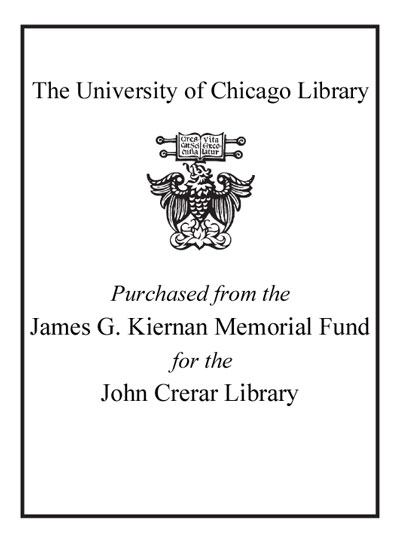The pox and the covenant : Mather, Franklin, and the epidemic that changed America's destiny /
| Author / Creator: | Williams, Tony, 1970- |
|---|---|
| Imprint: | Naperville, Ill. : Sourcebooks, c2010. |
| Description: | xxiv, 277 p. : map ; 24 cm. |
| Language: | English |
| Subject: | |
| Format: | Print Book |
| URL for this record: | http://pi.lib.uchicago.edu/1001/cat/bib/8267484 |
On September 6, 1620, the Puritans aboard the Mayflower departed on their religious errand into the American wilderness. They were Separatists who fled on their divinely ordained mission to escape persecution and establish a pure church free of the Catholic corruptions of the Anglican Church. As chronicler William Bradford wrote, in England, "religion has been disgraced, the godly aggrieved, afflicted, persecuted.... Sin has been countenanced, ignorance, profanity, and atheism have increased, and the papists have been encouraged." The Puritan church in the New World would recover its ancient biblical purity and be a model for the English Church; the Separatists could then return to their Mother Country. The Mayflower sailed from Plymouth for the New World, Bradford wrote, with a "prosperous wind." The crowded vessel measured roughly one hundred feet in length and was rated at 180 tons. Her sister ship, the Speedwell, had proved to be leaky beyond repair and had put in at Dartmouth to be mended. After a great deal of expense of lost time, the pair put to sea again but was forced back to Plymouth when the Speedwell sprang more leaks. The ship was clearly unequal to a transatlantic voyage, and some of her passengers boarded the Mayflower while others were forced to stay behind. Half of the provisions had been consumed in the weeks spent dealing with the Speedwell. It had been an inauspicious start to a voyage blessed by the Lord. The Mayflower sped across the white-tipped waves once the voyage was under way, and the passengers were quickly afflicted with seasickness. The crew took great delight in the sufferings of the landlubbers and tormented them mercilessly. "There is an insolent and very profane young man," Bradford wrote, "who was always harassing the poor people in their sickness, and cursing them daily with grievous execrations." He even laughed that he hoped to "throw half of them overboard before they came to their journey's end." The Puritans believed that a just God punished the young sailor for his cruelty when, halfway through the voyage, "it pleased God...to smite the young man with a grievous disease, of which he died in a desperate manner." He was the first to be thrown overboard. The favorable winds dissipated, and the Mayflower encountered a series of fierce storms and westerly gales that forced the crew to furl the sails and ride it out. They were "forced to hull for many days" and driven back. They surrendered to the will of God and prayed for deliverance to survive their arduous journey. One day a young indentured servant came on deck during a terrible storm and was thrown into the sea. He somehow grasped the rope that raised and lowered the topsail even as he was dragged several feet under the surface. He was frantically hauled onto the deck. The Puritans interpreted his rescue as an instance of God's providence rewarding them for their piety. Unlike many other transatlantic voyages, only one passenger died. After a two-month trip during which they suffered the dreadful effects of that common seafaring disease scurvy, land was sighted on November 9. There were some disputes about where they would ultimately land because they tried to head southward for the Hudson River but encountered dangerous shoals and breakers that threatened to wreck the ship. The captain resolved on Cape Cod, but not before "discontented and mutinous speeches" were uttered by some of the "strangers" (passengers who were not Puritans) on board. The strangers were Englishmen who vowed that they were free men and would not submit to any authority over their lives. Given these threatening circumstances to a people plunging into a vast and dangerous wilderness, the Puritans assembled and laid the foundation of their government in the New World. They wrote: In the name of God, Amen. We whose names are underwritten, the loyal subjects of our dread sovereign lord, King James, by the grace of God, of Great Britain, France, and Ireland, King, Defender of the Faith, etc., having undertaken for the glory of God, and advancement of the Christian faith, and honor of our king and country, a voyage to plant the first colony in the northern parts of Virginia, do by these presents solemnly and mutually in the presence of God, and of one another, covenant and combine ourselves into a civil body politic, for our better ordering and preservation, and the furtherance of the ends aforesaid and by virtue hereof to enact, constitute, and frame, such just and equal laws, ordinances, acts, constitutions, and offices, from time to time, as shall be thought most meet and convenient for the general use of the Colony, unto which we promise all due submission and obedience. In witness thereof we have here underscribed our names as Cape Cod, 11th of November, in the year of the reign of our sovereign lord, King James of England, France, and Ireland the eighteenth, and of Scotland the fifty-fourth. A.D. 1620.


